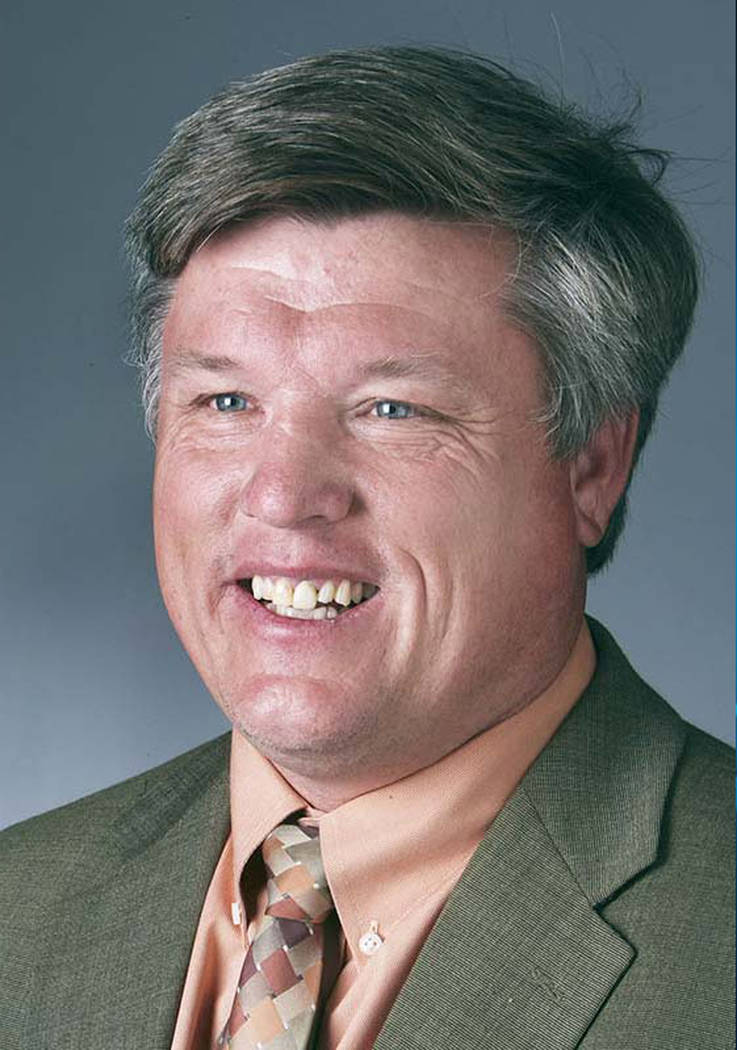Bad bill on Nevada constables turns good in state Legislature
CARSON CITY — In the end, North Las Vegas Constable Robert Eliason got a reprieve, but not a permanent one.
Eliason, a former North Las Vegas councilman, has been on the job despite a state law that requires constables in larger cities to be certified by the Commission on Police Officer Standards and Training, known as POST.
Although the law gives newly elected constables one year to get POST certified, with a possible extension of six months, Eliason has failed to meet the requirement after more than two years in office. And as the Review-Journal’s Michael Scott Davidson has reported, Eliason carries a weapon while performing official duties in the field.
The law also says a constable who doesn’t get POST certified within the time allotted forfeits his office, and calls on the county commission to appoint a replacement. But the commissioners have failed to act, after their attorneys advised them of a pending administrative legal action.
While all of this has been playing out, state Sen. Mo Denis, D-Las Vegas, introduced Senate Bill 250, at Eliason’s request. The original version of the bill would have removed the POST certification requirement entirely, allowing Eliason to keep his office. But that measure ran into opposition. So it was amended to require that would-be constables get POST certified before they file for office or accept appointments. The kicker? It would apply only to cities such as Henderson and Reno, but was carefully written to exempt North Las Vegas, again saving Eliason’s job.
But even that version drew opposition from lawmakers, who sensibly didn’t want urban constables who hadn’t been trained and certified on the streets with law-enforcement powers and carrying weapons.
So on Friday, the bill was amended once more, at the suggestion of Assemblywoman Daniele Monroe-Moreno, herself a retired corrections officer. Under her amendment, all constables in larger cities (including, notably, North Las Vegas) would be required to get POST certified before they file for office or accept appointment to the job. This will ensure the Eliason situation is never repeated, because candidates who aren’t POST certified would be ineligible.
(The measure now goes to the full Assembly, and then back to the Senate for concurrence in the amendments, although Monroe-Moreno said she’d spoken to Denis about her proposed changes.)
What about Eliason? Well, SB 250 won’t be retroactive, so he’ll get to stay in office for the remainder of his term, which ends in January 2019. But if he wants to be re-elected, he’ll have to meet the requirements of the new law.
The tendency in Nevada to make law for the benefit of a small group — or even a single person — has always been one of the soft corruptions of the political system. If you’re a regular person, you’re stuck following the law, no matter what expenses it imposes. Every would-be police officer in the state — before he or she can pin on a badge and drive a patrol car — must attend an academy and pass its rigors.
But for those insiders with connections (cops often call it a “hook”), the NRS can be rewritten at your request, so the nettlesome requirements that apply to others won’t apply to you.
We like to say we’re a government of laws, and not of men. But the truth is, we’re a government where men (and women) write the laws. Sometimes, they do so not for reasons of good public policy but to help a favored person or constituency.
In the end, however, thanks to the efforts of good lawmakers who recognized a bad idea, SB 250 was transformed by legislative alchemy back into sensible policy. It may not be good for Robert Eliason, but it is good for the state, and that’s what matters most in the end.
Contact Steve Sebelius at SSebelius@reviewjournal.com or 702-387-5276. Follow @SteveSebelius on Twitter.







